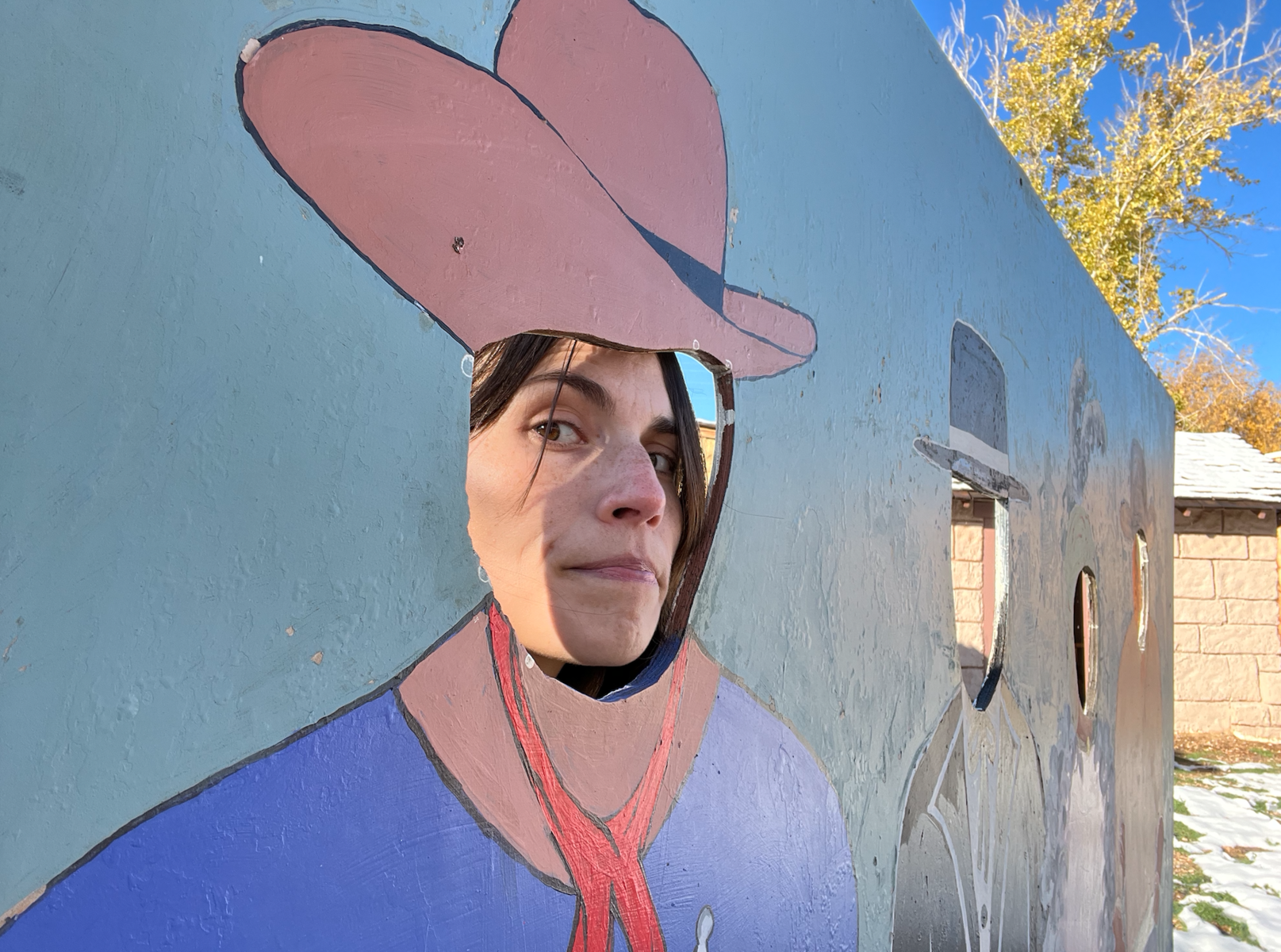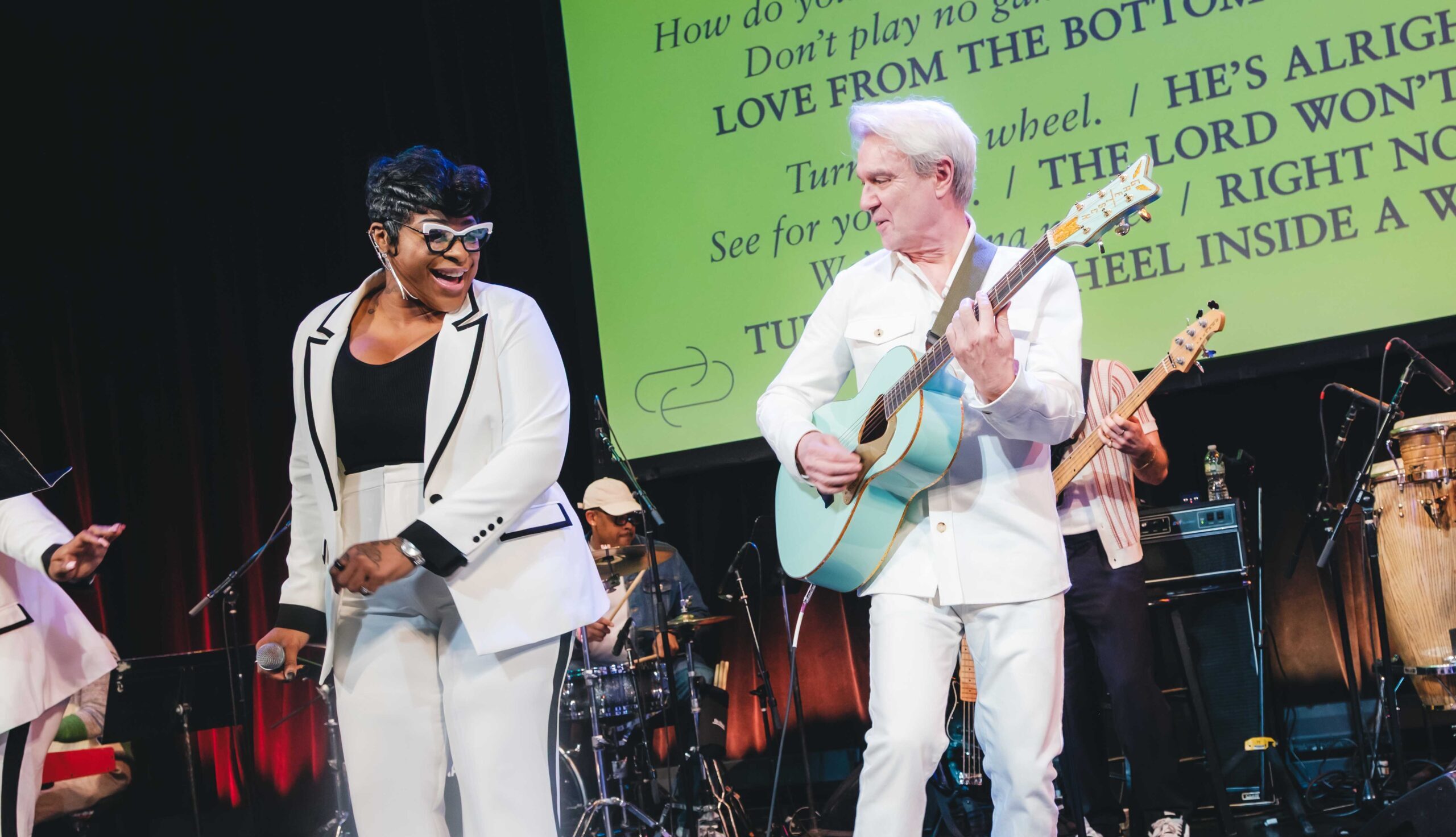Hey there, Cheermeisters! Christine McLaren here, founding editor of Reasons to be Cheerful. This month I have the wonderful honor of introducing to you RTBC’s latest team member, editorial director Rebecca Worby!
A recent (re)transplant from Austin, Texas, Becca brings experience from Pacific Standard and High Country News — both friends of RTBC — and a fresh new perspective to the team. While we couldn’t quite agree on the correct pronunciation of beer koozie (or cozy!!), we definitely agreed on our excitement for what is to come as she works to bring you more of the blues-busting solutions journalism we love to deliver every day of the week. See our conversation below as we give Becca a warm welcome, y’all!
Christine: How about you introduce yourself and tell us a bit about what brought you here?
Becca: I am a writer and editor. I went to grad school for creative writing, nonfiction, and slowly tipped from there into journalism. The two, of course, are complementary: I learned a lot about how to be a journalist, how to write engagingly and how to be a good editor from doing creative writing and also from teaching composition when I was in grad school. That was actually one of the most important parts of my education as a journalist: being a teacher and learning how to give feedback in a helpful way.
In the last several years I’ve lived in Colorado, California and Texas. But I’m from New York originally and, by the time you read this, I will be there again. I’ve worked at High Country News, which is a magazine about the American West, and at a magazine called Pacific Standard that sadly shut down in 2019, but it was a really great place for stories about social and environmental justice. Then I took kind of a left turn and ended up working for a travel publisher called Wildsam, which makes these cool little books about places.
But I was finding myself pulled back towards journalism. Reasons to be Cheerful feels like a return to a lot of the kinds of things I was thinking about in my previous jobs and a way to bring together a lot of my interests. The solutions journalism approach, of course, appealed to me because in my other journalism jobs I was often reporting on, or editing, not great news. It’s been a wonderful change in outlook to be really seeking out stories about things that are working well.
Christine: Do you see a strong link between your work as an environmental reporter and solutions journalism?
Becca: It’s easy in environmental journalism to just keep reporting on the bad news: how this mine is damaging this pristine landscape, or look at how these regulations are being stripped. So it’s been really exciting to approach things a little bit differently. People want to read about climate change right now and they want to know what they can do and what’s being done in the world.
Christine: I think it’s one of the richest areas, not just for stories — it’s one of the areas where people need the most hope. So people always, I think, read those stories with a lot of earnest gusto.
Becca: When you look at the big picture, it’s very easy to feel just overwhelmed and downtrodden and like there’s nothing to be done. But the more that you look at community-level stories, local initiatives, things that are working on a small scale that could be replicated — I find it very comforting and very helpful for my own mental health.
Christine: Over time, there’s been this shift from talking about Reasons to be Cheerful as an antidote to doom and gloom, and instead moving towards more empowerment. Rather than it being like you’re stuck in this mud pit that you can’t get out of when you think about the news and we want pull you out, it’s more like, no, there’s so much going on, there’s so many amazing things, and we want that news to be able to empower people. To have a sense of solutions-oriented thinking become more the norm. So it’s a bit of a different perspective to come from, I guess.
Becca: Yeah, totally. It’s less take this pill and you’ll feel better for a while and more like, let’s change the outlook, let’s change the way that you’re looking at this.
Christine: Yeah, and as a result, let’s change what feels possible for you, for your community, for the organizations that you’re working in.
Becca: One of the interesting challenges of the last few months has been wrapping my head around what makes a RTBC story beyond just being solutions journalism, because it is more specific than that. When you read one of our stories, you come away very satisfied. There’s a feeling of: Oh, here’s a thing that is not only working, but now I understand how it works. I know what the process is and I understand who’s involved and who’s making it work. And I feel confident that this thing could happen in other places and continue to have a greater and greater impact because I can see it all right in front of me.
Christine: It’s true. There’s an attainable-ness about RTBC stories.
Becca: I’m curious if you, as one of the founding editors, have any sort of hopes and dreams for what you’d like to see RTBC doing in the future.
Christine: I would love for RTBC to start reaching into new places, new audiences. I think there are a lot of communities that would be interested in RTBC for reasons that are specific to their community that maybe we haven’t reached yet. So I’d love to find ways for RTBC to engage more deeply, I guess. RTBC has built this amazing foundation of trust and and engagement with the readers that are already here, and there’s opportunity to experiment with different forms of storytelling. One of the ways that Will [Doig, executive editor] has put it is, it’s like we’ve got this super solid bass line and now we can start adding new melodies on top.
Becca: I like that.
Christine: Should we spitball the headline for your return to New York?
Becca: Oh, gosh, sure.
Christine: Is it The Austin Editor Returns to Big Apple, or is it like, Creative Writing Genius Makes Triumphant Comeback to Journalistic Roots? I guess they’re not your roots. They’re like your wings.
Becca: Or is it, like, Writer and Editor, After Boomeranging Among Many Expensive Places in the US, Makes Dubious Choice to Return to Most Expensive One?
Christine: That’s the one. And you’ll never believe what happens! Is there a Texan survival item you’re bringing with you to New York?
Becca: Well, the tortillas I’ll miss, but I can’t bring those, sadly. But: beer koozies. The foam ones that you put around your can. They’re really big here. Partly because it can get so extremely hot here in the summertime. I’ve started keeping them in my Yeti cooler — which is another Texas thing — so that when I go out somewhere, I’ve got them at the ready.
Christine: I think it’s a shame that the readers won’t be able to hear how you’re pronouncing cozy. Like k-o-o-z-i-e. I would call it a beer cozy, like c-o-z-y. But this isn’t you taking the word cozy and pronouncing it differently — you have an entirely different understanding of what a beer cozy is called.
Becca: Texans are really into them. It could very well be regional variation.
Christine: You just probably have more of a need for beer cozies down there than you might up here. Not as much snow to put your beer in after ski trips. Well, I can’t wait to see what you do during your time here. How does one say goodbye in Texas?
Becca: I guess just: Bye y’all!










